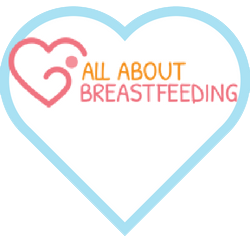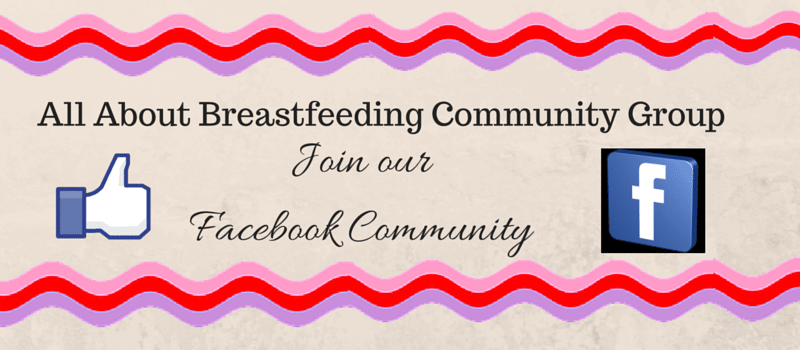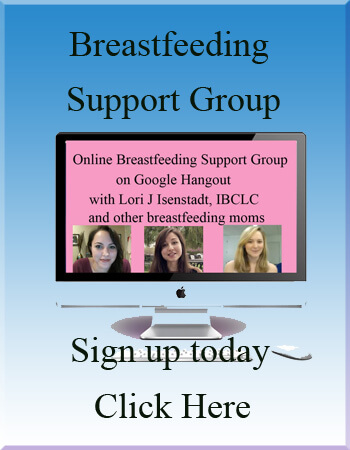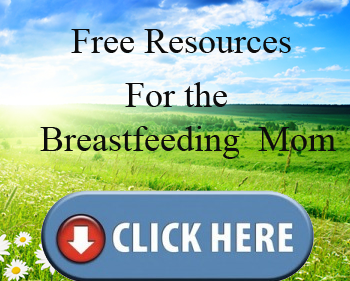We are going to focus on a question that I am asked many, many times, particularly during the cold and flu season.My inbox is filled with the same question. Do I need to stop breastfeeding if I get sick?
I will begin by saying that it is a rare illness that will require a mother to stop breastfeeding. The risks of not breastfeeding almost always outweigh the risk to the baby of breastfeeding.
I am going to read directly from the most current CDC Guidelines dated November 2016. Breastfeeding is not advisable if one or more of the conditions is true:
1. An infant diagnosed with galactosemia, a rare genetic metabolic disorder
2. The infant whose mother:
3. Has been infected with the human immunodeficiency virus (HIV)
4. Is taking antiretroviral medications
5. Has untreated, active tuberculosis
6. Is infected with human T-cell lymphotropic virus type I or type II
7. Is using or is dependent upon an illicit drug
8. Is taking prescribed cancer chemotherapy agents, such as antimetabolites that interfere with DNA replication and cell division
9. Is undergoing radiation therapies; however, such nuclear medicine therapies require only a temporary interruption in breastfeeding
The conditions I just listed will require you being advised by your healthcare professional
For most other medical conditions, I would say that the risks of not breastfeeding almost always outweigh the risk to the baby of breastfeeding. Basically, what this means is that it poses a greater risk to your baby when you stop breastfeeding when you get sick. I will elaborate on this in a few minutes.
What are parents greatest concerns? Understandably, you are concerned that if you are sick, your baby will catch whatever it is that you have. Of course, the last thing we want is our babies to get sick.
Out bodies are pretty darn amazing in helping to protect our babies. While I know this information and I talk to parents about it frequently, when I sit quietly and think about this, I am continually amazed.
Here is how your body handles illness and how it protects your baby:
Before you knew that you were sick, you were already breastfeeding your baby
Which means that your baby has already been exposed to whatever virus or bacteria that made you sick.
When you became sick, your body went to work. It began producing antibodies to fight your illness. Antibodies are special cells of the immune system which can recognize organisms that invade the body, like bacteria, viruses and fungi. These special cells are then able to set off a complex chain of events that are designed to kill these foreign invaders. These antibodies go right to your baby directly from your milk supply.
That’s what I mean when I say, when I sit quietly and just think about how amazing our bodies are and how capable we are of keeping our babies healthy. Our bodies respond to our illness and bring out fighter cells that kill off the bad guys. How amazing is that!
This is exactly the reason you want to keep breastfeeding.
The antibodies are like medicine to your baby.
You have the medicine that you baby needs.
The last thing you want to do is to take away your babies medicine.
This does not provide 100% protection, however, the likelihood of your baby catching what illness you have is greatly reduced if you keep breastfeeding. If your baby does get sick, it will likely be a milder case.
Being a mom makes it hard to avoid contact with your baby.
You can take basic simple precautions such as hand washing on a regular basis as this can reduce the likelihood of transfer.
While it may be safe for you to continue to breastfeed your baby during your illness, you may feel so badly that you are having a hard time doing so. Caring for your baby will be easier if you tuck your baby in bed with you and have others help you by keeping you with a steady supply of fluids, water and whatever light food you can keep down.
If your baby does get sick with a cold or flu, the breastfeeding may be affected.
Your baby may still be hungry and thirsty, however, may have a difficult time breastfeeding with a stuffy nose. When your baby forms a good seal around your breast, which they do in order to breastfeed, this makes it more difficult to breathe through the nose.
Because of this, you may notice your baby breastfeeding for shorter periods of time than usual, and more frequently than usual. This is fine.
Babies who have ear infections can be uncomfortable, or in pain.The suction your baby creates when breastfeeding can make their ears hurt. You may notice that your baby breastfeeds shorter period of times but perhaps more frequently.
Perhaps your baby begins to lose interest in breastfeeding. Perhaps because of fever or pain or GI upsetness. If you feel stuffiness is the issue, you can breastfeed in a room with a vaporizer. If this does not help you can try going into the bathroom turning on the shower and breastfeed while the shower is running as the steam may help reduce the stuffiness.
If you feed your baby frequent and short feedings you will probably avoid her from getting dehydrated, but it is helpful to know the signs. I would like to remind you of the signs of dehydration in babies:
You just start to notice they are acting differently, less energy, a weak cry, less than usual pee diapers. You may also notice the fontanel or what we also call the soft spot on her head looking sunken in or depressed. She may have dry eyes or a dry mouth. When you pinch her skin, it says pinched looking for a longer time after you gently pinch it. Clean finger in baby’s mouth reveals dry mouth like sandpaper.
If your baby is refusing to breastfeed, you will want to call your baby’s Dr.You can try hand expressing your milk and and try several ways to feed it to your baby. Some babies will be able to spoon or cup feed well. Some will do better with syringe feeding. You will need to do what you can to offer frequent feeds to keep your baby hydrated. You will need to keep removing the milk by hand or pump to keep up your supply, until your baby is feeling well enough to breastfeeding the usual times of day.
It can be quite trying, tiring and it is common to feel somewhat anxious when your baby gets sick. Anytime you or your baby are sick, it is recommended to call both of your physicians and speak to them about specific care. Please take note of all the information shared with you and know that, unless there is a specific medical reason to do so, you should continue to breastfeed or offer your baby your milk during the illness.
Show Episodes
Episode # 136 – Breastfeeding and Medication
https://www.allaboutbreastfeeding.biz/faq13/.
CDC Recommendations:
https://www.cdc.gov/breastfeeding/disease/
Lori J. Isenstadt, IBCLC
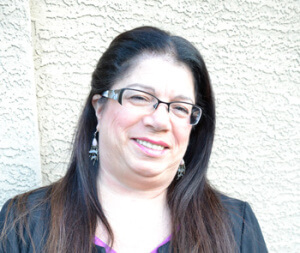 Lori Jill Isenstadt, IBCLC is a huge breastfeeding supporter. She has spent much of her adult life working in the maternal health field. Once she became turned on to birth and became a childbirth educator, there was no stopping her love of working with families during their childbearing years. Lori became a Birth doula and a Postpartum doula and soon became a lactation consultant. She has been helping moms and babies with breastfeeding for over 25 years. Lori founded her private practice, All About Breastfeeding where she meets with moms one on one to help solve their breastfeeding challenges. She is an international speaker, book author and the host of the popular itunes podcast, All About Breastfeeding, the place where the girls hang out. You can reach Lori by email at: aabreastfeeding@hotmail.com or contact her via her website: allaboutbreastfeeding.biz/contact
Lori Jill Isenstadt, IBCLC is a huge breastfeeding supporter. She has spent much of her adult life working in the maternal health field. Once she became turned on to birth and became a childbirth educator, there was no stopping her love of working with families during their childbearing years. Lori became a Birth doula and a Postpartum doula and soon became a lactation consultant. She has been helping moms and babies with breastfeeding for over 25 years. Lori founded her private practice, All About Breastfeeding where she meets with moms one on one to help solve their breastfeeding challenges. She is an international speaker, book author and the host of the popular itunes podcast, All About Breastfeeding, the place where the girls hang out. You can reach Lori by email at: aabreastfeeding@hotmail.com or contact her via her website: allaboutbreastfeeding.biz/contact

Listen Here
Submit a comment
your email address will not be published
